
Find Help
More Items From Ergsy search
-

What is the survival rate for testicular cancer?
Relevance: 100%
-

What is testicular cancer?
Relevance: 69%
-
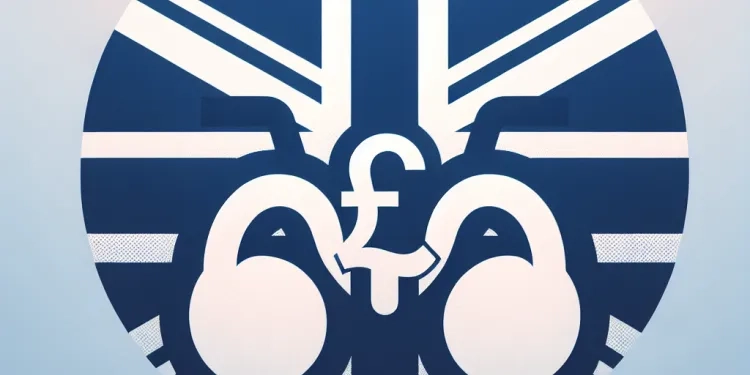
What is testicular cancer?
Relevance: 68%
-

How common is testicular cancer?
Relevance: 67%
-
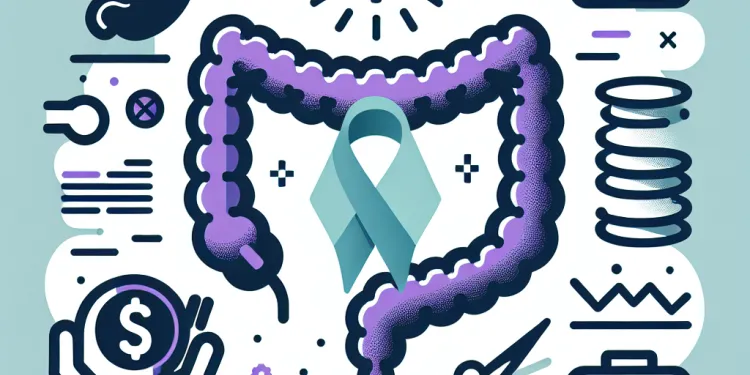
What is the survival rate for bowel cancer?
Relevance: 67%
-

What is testicular cancer?
Relevance: 67%
-
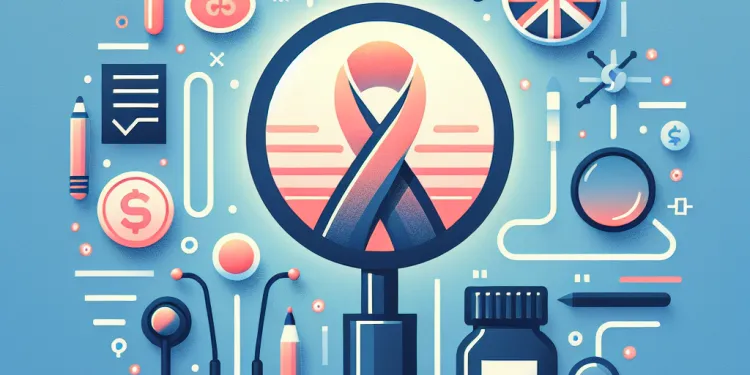
Is testicular cancer treatable?
Relevance: 65%
-

Can testicular cancer spread to other parts of the body?
Relevance: 63%
-

Can AI predict lung cancer survival rates?
Relevance: 59%
-

Who is at risk for testicular cancer?
Relevance: 58%
-
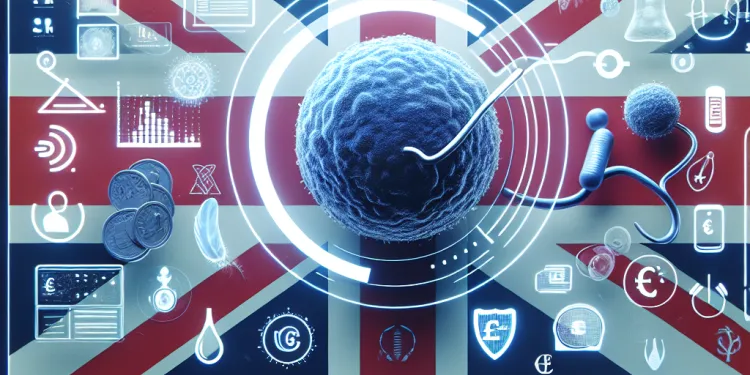
How is testicular cancer diagnosed?
Relevance: 54%
-
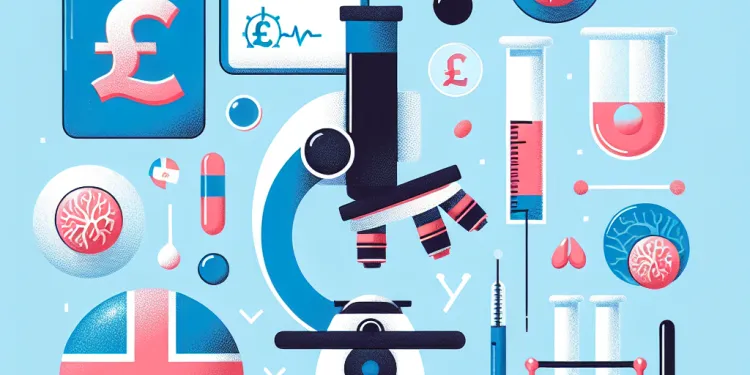
What causes testicular cancer?
Relevance: 54%
-

What are the stages of testicular cancer?
Relevance: 54%
-

Can testicular cancer recur after treatment?
Relevance: 53%
-
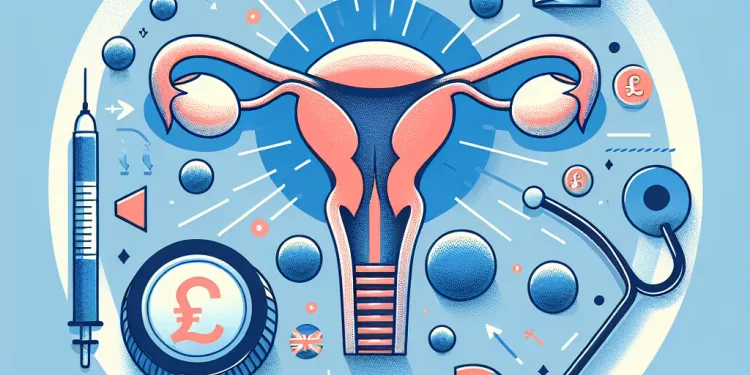
What are the symptoms of testicular cancer?
Relevance: 53%
-
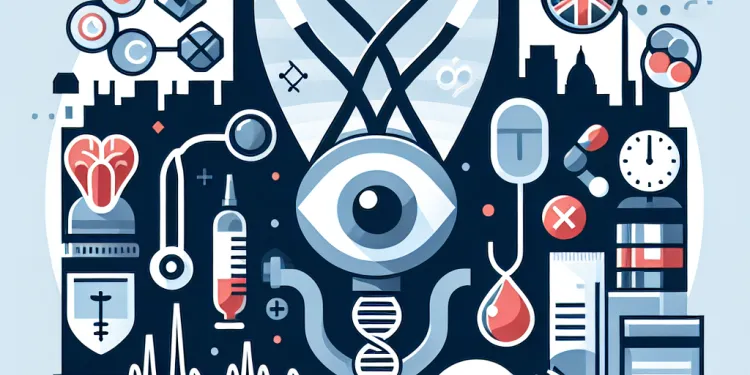
What role do tumor markers play in testicular cancer?
Relevance: 52%
-
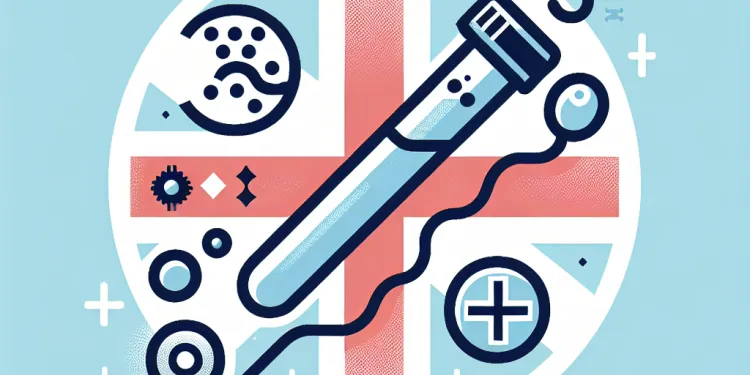
Is fertility affected by testicular cancer?
Relevance: 52%
-
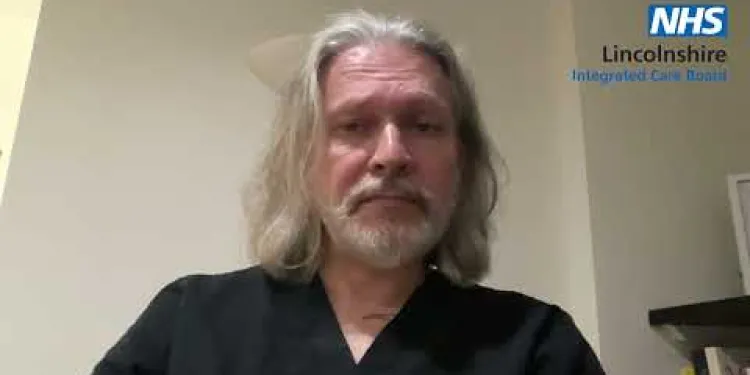
Getting to know your Testicles: Testicular Cancer Awareness with Dr James Howarth, Spilsby Surgery
Relevance: 51%
-
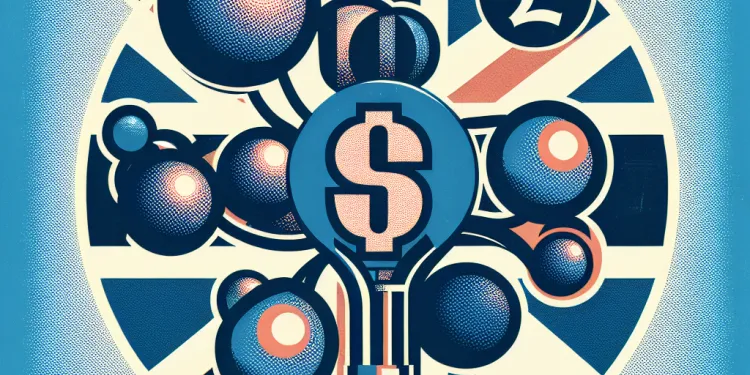
What types of treatments are available for testicular cancer?
Relevance: 50%
-

Are there support groups for those affected by testicular cancer?
Relevance: 49%
-

Can lifestyle changes help prevent testicular cancer?
Relevance: 47%
-

How can I perform a testicular self-exam?
Relevance: 39%
-

When should I see a doctor about potential testicular cancer?
Relevance: 32%
-
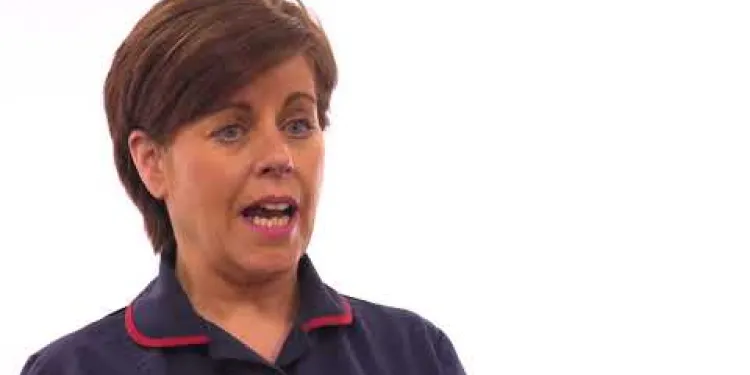
Endometrial Cancer
Relevance: 31%
-
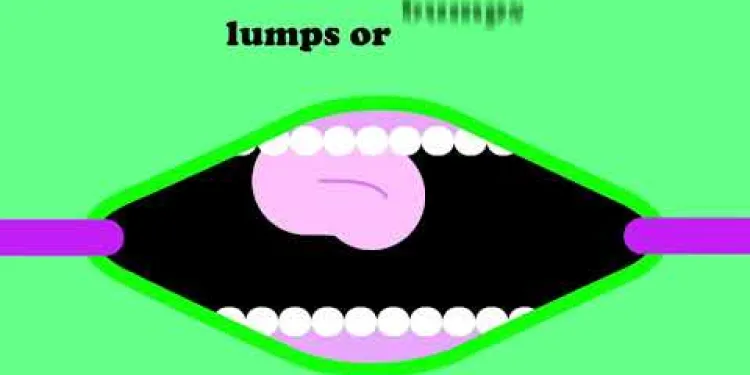
Mouth Cancer Infomercial
Relevance: 31%
-
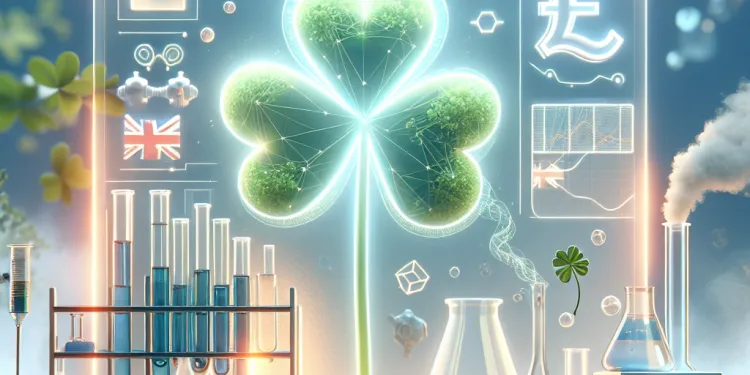
Breakthrough in Cancer Treatment Offers Hope for Prostate Cancer Patients
Relevance: 31%
-
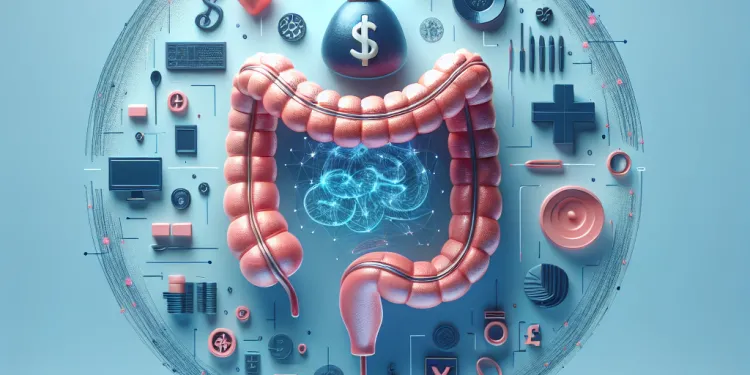
How common is bowel cancer?
Relevance: 30%
-
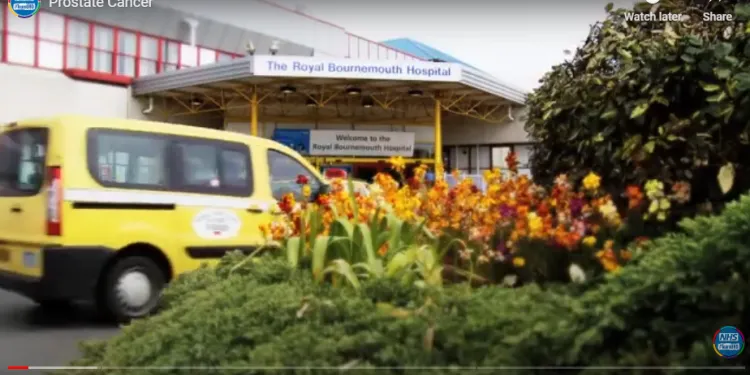
What is Prostate Cancer?
Relevance: 30%
-

Can nits survive on furniture or clothing?
Relevance: 30%
-
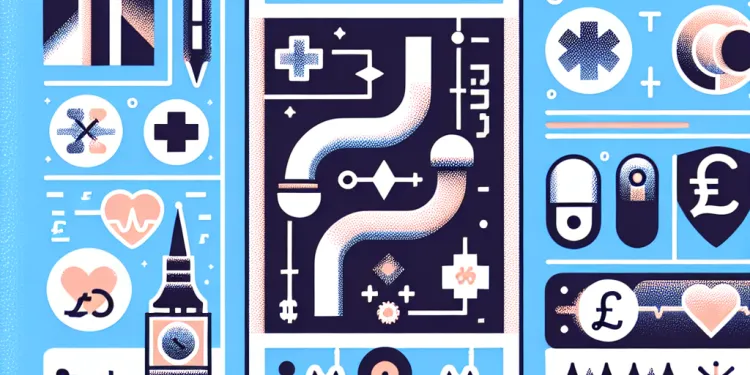
What is Pancreatic Cancer?
Relevance: 30%
-

How does increased screening impact bowel cancer statistics?
Relevance: 29%
-
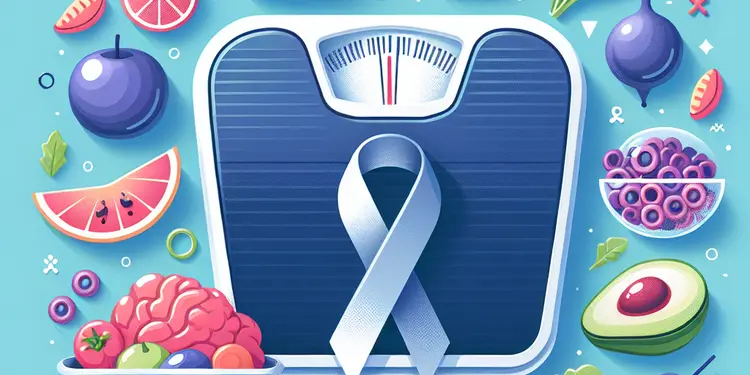
How does obesity affect bowel cancer rates?
Relevance: 29%
-

Why is there a surge in bowel cancer?
Relevance: 29%
-

Can exercise help slow down the progression of bowel cancer?
Relevance: 28%
-
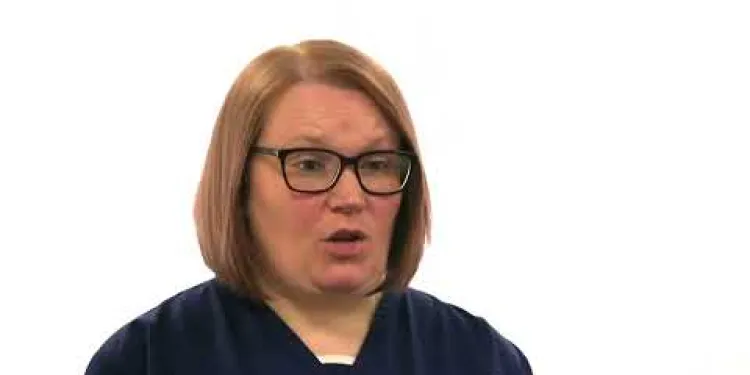
Vulval Cancer
Relevance: 27%
-
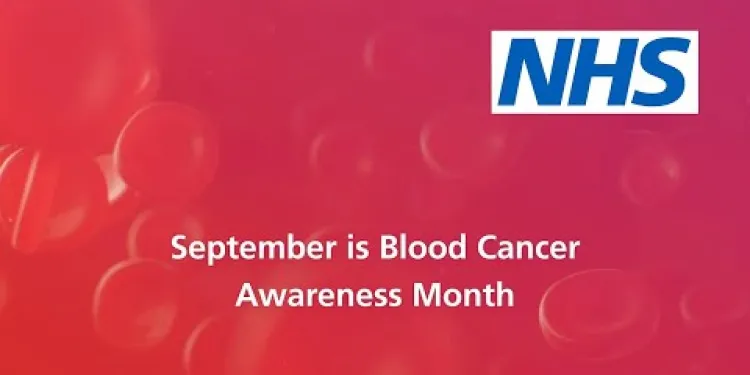
4 facts about blood cancer that you should know | NHS
Relevance: 27%
-

Does Abiraterone cure prostate cancer?
Relevance: 27%
-
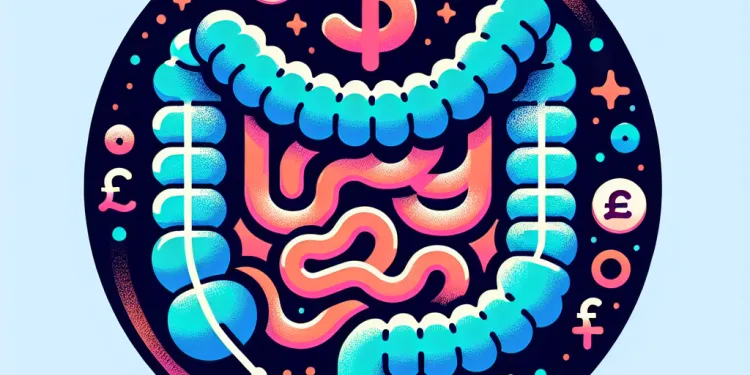
What is colorectal cancer?
Relevance: 26%
-
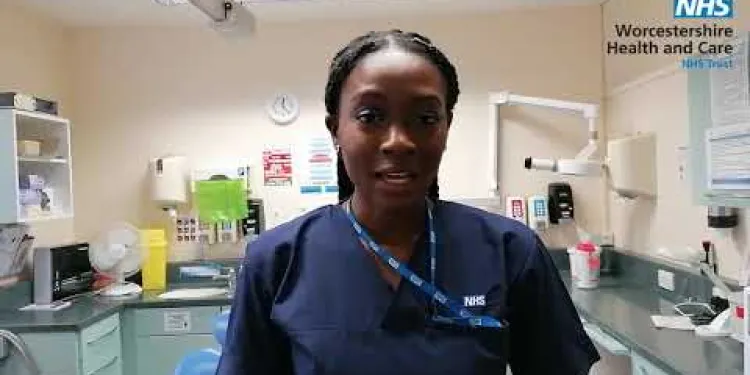
Mouth Cancer Awareness
Relevance: 26%
-

Can exercise help slow down the progression of bowel cancer?
Relevance: 26%
Understanding Testicular Cancer
Testicular cancer, though relatively rare, is a significant health concern for men, particularly those aged 15 to 49. In the UK, as in many other countries, awareness and early diagnosis have improved significantly over the years. This has contributed positively to treatment outcomes and survival rates.
Survival Rate Overview
The survival rate for testicular cancer in the UK is remarkably high compared to many other forms of cancer. According to Cancer Research UK, around 98% of men diagnosed with testicular cancer survive for ten years or more. Early diagnosis and advances in treatment have played crucial roles in achieving these impressive survival outcomes. Testicular cancer has one of the highest survival rates of all cancers.
Factors Influencing Survival Rates
Several factors contribute to the high survival rates for testicular cancer. Early detection is perhaps the most significant factor. Men are increasingly aware of the importance of self-examination and seeking medical attention promptly if they notice any changes. Additionally, testicular cancer is highly responsive to treatment, especially chemotherapy and surgery. The type and stage of cancer at the time of diagnosis also influence the survival rates, with early-stage cancers having a more favorable prognosis.
Types and Stages of Testicular Cancer
Testicular cancer primarily consists of two types: seminomas and non-seminomas. Seminomas tend to grow and spread more slowly than non-seminomas. Each type may respond differently to treatments, but both have high survival rates with proper management. Staging, which describes how far the cancer has spread, is also crucial in determining the prognosis. Stage I, where cancer is confined to the testicle, typically has better outcomes compared to more advanced stages.
The Importance of Continued Research and Support
While the current survival rates are encouraging, ongoing research is vital to continue improving outcomes and understanding potential long-term effects of treatment. Support networks and resources for those affected by testicular cancer also play a critical role in recovery and quality of life. Charities and healthcare providers in the UK offer a range of support services, which can significantly assist patients and their families during treatment and beyond.
Conclusion
The survival rate for testicular cancer in the UK is among the highest for any type of cancer, reflecting the effectiveness of current treatments and the importance of early detection. It highlights the need for continued vigilance and awareness about the condition, ensuring men are informed and proactive about their health. With ongoing research and support, the outlook for those diagnosed with testicular cancer remains positive.
What is Testicular Cancer?
Testicular cancer is a type of cancer that affects men, usually between the ages of 15 and 49. It's not very common, but it is still important to know about. In the UK, people have become more aware of this cancer, and doctors can find it earlier now. This makes treatment work better and helps more men get better.
How Many People Survive Testicular Cancer?
Lots of men who get testicular cancer in the UK survive. In fact, about 98 out of every 100 men live for 10 years or more after they find out they have it. Finding it early and good treatments make these survival numbers very high. Testicular cancer has one of the best survival rates among all cancers.
What Helps People Survive Testicular Cancer?
There are several reasons why so many men survive testicular cancer. The most important reason is finding it early. Men are learning how to check themselves and go to the doctor quickly if they notice something is wrong. This type of cancer also responds well to treatments like chemotherapy and surgery. The stage of cancer matters too. It's easier to treat if it's caught early.
Different Types and Stages of Testicular Cancer
There are two main types of testicular cancer: seminomas and non-seminomas. Seminomas grow slowly, while non-seminomas grow faster. Both types can be treated well, but they might need different kinds of treatment. The stage tells us how far the cancer has spread. Stage I means the cancer is only in the testicle, and usually, this stage has better outcomes.
Why Research and Support Are Important
Although many men survive testicular cancer, research is still important to make things even better and to understand any long-term effects of treatment. Support from doctors and charities helps men and their families through the treatment process. They offer services that can make coping with cancer easier.
Summary
Testicular cancer in the UK has one of the highest survival rates thanks to good treatments and early detection. It’s important for men to be aware of this cancer and proactive about their health. With more research and support, things can keep getting better for those with testicular cancer.
Frequently Asked Questions
What is the general survival rate for testicular cancer?
The general 5-year survival rate for testicular cancer is about 95% to 99%, depending on the stage and type.
Does survival rate vary by stage of testicular cancer?
Yes, survival rates are higher when the cancer is detected in the early stages. Stage I often has a 5-year survival rate of nearly 99%.
What is the survival rate for stage I testicular cancer?
The 5-year survival rate for stage I testicular cancer is approximately 99%.
What is the survival rate for stage II testicular cancer?
The 5-year survival rate for stage II testicular cancer is about 96%.
What is the survival rate for stage III testicular cancer?
The 5-year survival rate for stage III testicular cancer is around 73% to 80%, depending on various factors.
How curable is testicular cancer if detected early?
Testicular cancer is highly curable when detected early, with survival rates close to 99% in stage I.
Can testicular cancer be cured if it has spread?
Yes, even if testicular cancer has spread, it is often still curable with treatment, and survival rates remain high compared to many other types of cancer.
Does type of testicular cancer affect survival rates?
Overall, both seminomas and non-seminomas have high survival rates, but early detection and appropriate treatment are crucial.
What factors influence the survival rate of testicular cancer?
Factors include the cancer stage, type (seminoma or non-seminoma), patient’s age and overall health, and response to treatment.
Are survival rates for recurrent testicular cancer different?
Survival rates may be lower for recurrent testicular cancer, but aggressive treatment options can still be effective.
Has the survival rate for testicular cancer improved over time?
Yes, advancements in treatment have significantly improved survival rates over the past few decades.
What is the survival rate for non-seminoma testicular cancer?
Non-seminoma testicular cancer has a high survival rate, particularly when detected in early stages, similar to seminomas.
What is the survival rate for seminoma testicular cancer?
Seminoma testicular cancer has a very high survival rate of about 95% to 99% with appropriate treatment.
Does age affect testicular cancer survival rates?
Generally, age does not have a significant impact on survival rates for testicular cancer, which are high across all age groups.
What treatments affect the survival rate for testicular cancer?
Surgery, chemotherapy, and radiation therapy can all effectively treat testicular cancer and impact survival rates positively.
What is the outlook for someone diagnosed with testicular cancer?
The outlook is generally very positive, with a high cure rate, especially when diagnosed early.
Do lifestyle changes impact the survival rate of testicular cancer?
While lifestyle changes can support overall health, the primary factors impacting survival are early detection and treatment.
How does testicular cancer survival rate compare to other cancers?
Testicular cancer has one of the highest survival rates among all cancers.
What role does early detection play in testicular cancer survival?
Early detection is crucial in ensuring higher survival rates, as it usually results in more effective treatment options.
Can testicular cancer be completely cured?
Yes, testicular cancer is often curable, particularly if caught early and treated appropriately, leading to long-term remission.
How many people with testicular cancer get better?
Most people with testicular cancer get better. Doctors usually have good treatments. It's important to see a doctor if you feel something is wrong. You can ask a friend or family member to go with you. If reading is hard, you can use an audiobook or ask someone to read to you.
The chance of living for 5 years or more after having testicular cancer is very high. Most people, between 95% to 99%, can live for at least 5 years. This depends on how much the cancer has spread and the type of cancer.
Do people live longer with different stages of testicular cancer?
Yes, people have a better chance of getting better if the cancer is found early. If someone has Stage I cancer, they have a 99% chance of living for at least 5 more years.
How many people get better from stage I testicular cancer?
If someone has stage 1 testicular cancer, it means they have a very high chance of living for at least 5 more years. This chance is about 99 out of 100.
How many people get better when they have stage II testicular cancer?
If a person has stage II testicular cancer, there is a very good chance they will live for at least 5 more years. About 96 out of every 100 people with this cancer will survive for 5 years or more.
How many people get better from stage III testicular cancer?
Stage III testicular cancer is when the cancer has spread to other parts of the body. Many people with this type of cancer get better with treatment. Here are some tips to help understand and find more information:
- Ask your doctor about the treatments that work well for stage III testicular cancer.
- Use simple words or pictures to help understand the information.
- Find support groups for people with testicular cancer.
- Ask a family member or friend to help you talk to the doctor.
For stage III testicular cancer, about 73 to 80 out of 100 people live for at least 5 years after finding out they are sick. This depends on different things.
How easy is it to cure testicular cancer if found early?
Testicular cancer is a type of cancer found in the testicles. If doctors find it early, it is often easy to treat and cure.
Finding cancer early means telling a doctor right away if you notice changes, like a lump, in your testicles.
Doctors can do tests to find out what is wrong. Early treatment can help, so it is important to see a doctor quickly.
If you are worried about testicular cancer, ask your doctor for help. They can give you information and support.
Testicular cancer is a type of cancer that can be treated very well if found early. Almost everyone with the earliest stage, called stage I, survives.
Can we make someone better from testicular cancer if it has spread?
Testicular cancer is a sickness that starts in a man's testicles. If it spreads to other parts of the body, it might be harder to cure. But many treatments can help. Doctors use medicines called chemotherapy and sometimes surgery to remove the cancer. These treatments can still work even if the cancer has spread.
If you have questions, talk to a doctor. They can explain what will happen and what can help. It’s good to have someone with you to listen too. Writing down questions can help you remember what to ask the doctor.
Yes, even if cancer in the testicles has spread, doctors can still often treat it and help you get better. People with this cancer usually have a good chance of getting well compared to other cancers.
Does the type of testicular cancer change how likely someone is to survive?
Both seminomas and non-seminomas are types of cancer. Most people get better if doctors find and treat the cancer early. It's really important to see a doctor as soon as possible so they can help you get the right treatment.
What things affect how likely someone is to survive testicular cancer?
Testicular cancer is a sickness that happens in a man's testicles. Some things can affect how well a person can get better from it. Here are some things that might matter:
- Early detection: Finding the cancer early can help doctors treat it better. It's important to see a doctor if there are changes.
- Treatment: Different treatments like surgery, medicine, or radiation can be used. Doctors choose the best one for each person.
- Overall health: Staying healthy, eating well, and exercising can help the body fight cancer.
- Support: Having family and friends to help can make a big difference.
If you want to understand this better, you can:
- Ask someone you trust to explain it to you.
- Use a computer program that reads out loud.
- Look for videos that explain it in simple words.
Things that matter are:
- How much the cancer has grown.
- What type of cancer it is (seminoma or non-seminoma).
- How old the person is.
- How healthy the person is.
- How well the treatment is working.
Tools like pictures or videos can help. You can also ask your doctor to explain things in simple words.
Do people get better from testicular cancer when it comes back?
Testicular cancer can come back after treatment. This is called recurrent cancer.
Doctors want to help people get better, even if cancer comes back.
Some things can help people understand this better:
- Ask your doctor lots of questions.
- Use pictures or videos to learn more.
- Talk to a nurse or support group for help.
Survival rates might be lower for testicular cancer that comes back, but strong treatments can still work well.
Has the chance of living after testicular cancer gotten better?
Let's find out if more people are living after having testicular cancer than before.
You can use pictures or videos to help understand.
Yes, new treatments have helped many more people survive over the years.
How many people live after getting non-seminoma testicular cancer?
Non-seminoma testicular cancer has a good chance of being cured. This is especially true if it is found early, just like seminomas.
How many people get better from seminoma testicular cancer?
Testicular cancer called seminoma can be treated very well. Most people (about 95 to 99 out of 100) get better when they have the right treatment.
Does age change how long people live with testicular cancer?
Some people might want help with this question. You can use pictures or videos to understand better. Ask a friend or adult if you have more questions.
Age does not change how well people do with testicular cancer. Most people get better, no matter how old they are.
What treatments help people live longer with testicular cancer?
Surgery, chemotherapy, and radiation therapy can all help treat testicular cancer. They can make survival rates better.
What happens if someone has testicular cancer?
The future looks good. Most people get better, especially if doctors find the problem early.
Can changing how you live help you survive testicular cancer?
Here's a simpler way to understand the question:
- Lifestyle changes: Things like eating healthy, exercising, and avoiding bad habits.
- Survival rate: How many people get better and live after having testicular cancer.
Supportive tips:
- Talk to a doctor to know more.
- Use pictures or videos to understand better.
- Ask someone to explain tough words or ideas.
Making changes to how you live can help you be healthy. But, finding problems early and getting help from doctors are the most important things to keep you safe.
How does living after testicular cancer compare to other cancers?
Testicular cancer is cancer in a man's testicles. The good news is many people get better after having it.
Let's see how testicular cancer's survival is different from other cancers. We want to know how many people get better after getting cancer.
Here are some easy tips to help understand:
- Clear Words: Use simple words to talk about cancer.
- Ask Help: Talk to a doctor or nurse if you have questions.
- Tools: Use pictures or videos to understand better.
Testicular cancer is a type of cancer. It is one of the easiest cancers to treat. Most people get better from it.
You might find reading techniques and speech-to-text tools helpful if you have trouble reading.
How does finding testicular cancer early help someone get better?
Finding a problem early can save lives. It helps doctors give better treatment.
Can testicular cancer be completely cured?
Testicular cancer is a kind of illness in the body. Doctors can often fix it. Many people get all better. If someone has testicular cancer, they should see a doctor.
Doctors use special treatments to help. These can be medicines or operations. It is important to start treatment early. The sooner someone gets help, the better.
People who have testicular cancer should talk to their doctor. This helps them understand what to do next.
If you find it hard to read, you can ask someone to help you. You can also use special apps that read text out loud. Listening to the information can make it easier to understand.
Yes, doctors can often make testicular cancer go away, especially if they find it early and give the right treatment. This can mean the cancer stays away for a long time.
Useful Links
This website offers general information and is not a substitute for professional advice.
Always seek guidance from qualified professionals.
If you have any medical concerns or need urgent help, contact a healthcare professional or emergency services immediately.
Some of this content was generated with AI assistance. We’ve done our best to keep it accurate, helpful, and human-friendly.
- Ergsy carfully checks the information in the videos we provide here.
- Videos shown by Youtube after a video has completed, have NOT been reviewed by ERGSY.
- To view, click the arrow in centre of video.
- Most of the videos you find here will have subtitles and/or closed captions available.
- You may need to turn these on, and choose your preferred language.
- Go to the video you'd like to watch.
- If closed captions (CC) are available, settings will be visible on the bottom right of the video player.
- To turn on Captions, click settings .
- To turn off Captions, click settings again.
More Items From Ergsy search
-

What is the survival rate for testicular cancer?
Relevance: 100%
-

What is testicular cancer?
Relevance: 69%
-

What is testicular cancer?
Relevance: 68%
-

How common is testicular cancer?
Relevance: 67%
-

What is the survival rate for bowel cancer?
Relevance: 67%
-

What is testicular cancer?
Relevance: 67%
-

Is testicular cancer treatable?
Relevance: 65%
-

Can testicular cancer spread to other parts of the body?
Relevance: 63%
-

Can AI predict lung cancer survival rates?
Relevance: 59%
-

Who is at risk for testicular cancer?
Relevance: 58%
-

How is testicular cancer diagnosed?
Relevance: 54%
-

What causes testicular cancer?
Relevance: 54%
-

What are the stages of testicular cancer?
Relevance: 54%
-

Can testicular cancer recur after treatment?
Relevance: 53%
-

What are the symptoms of testicular cancer?
Relevance: 53%
-

What role do tumor markers play in testicular cancer?
Relevance: 52%
-

Is fertility affected by testicular cancer?
Relevance: 52%
-

Getting to know your Testicles: Testicular Cancer Awareness with Dr James Howarth, Spilsby Surgery
Relevance: 51%
-

What types of treatments are available for testicular cancer?
Relevance: 50%
-

Are there support groups for those affected by testicular cancer?
Relevance: 49%
-

Can lifestyle changes help prevent testicular cancer?
Relevance: 47%
-

How can I perform a testicular self-exam?
Relevance: 39%
-

When should I see a doctor about potential testicular cancer?
Relevance: 32%
-

Endometrial Cancer
Relevance: 31%
-

Mouth Cancer Infomercial
Relevance: 31%
-

Breakthrough in Cancer Treatment Offers Hope for Prostate Cancer Patients
Relevance: 31%
-

How common is bowel cancer?
Relevance: 30%
-

What is Prostate Cancer?
Relevance: 30%
-

Can nits survive on furniture or clothing?
Relevance: 30%
-

What is Pancreatic Cancer?
Relevance: 30%
-

How does increased screening impact bowel cancer statistics?
Relevance: 29%
-

How does obesity affect bowel cancer rates?
Relevance: 29%
-

Why is there a surge in bowel cancer?
Relevance: 29%
-

Can exercise help slow down the progression of bowel cancer?
Relevance: 28%
-

Vulval Cancer
Relevance: 27%
-

4 facts about blood cancer that you should know | NHS
Relevance: 27%
-

Does Abiraterone cure prostate cancer?
Relevance: 27%
-

What is colorectal cancer?
Relevance: 26%
-

Mouth Cancer Awareness
Relevance: 26%
-

Can exercise help slow down the progression of bowel cancer?
Relevance: 26%


